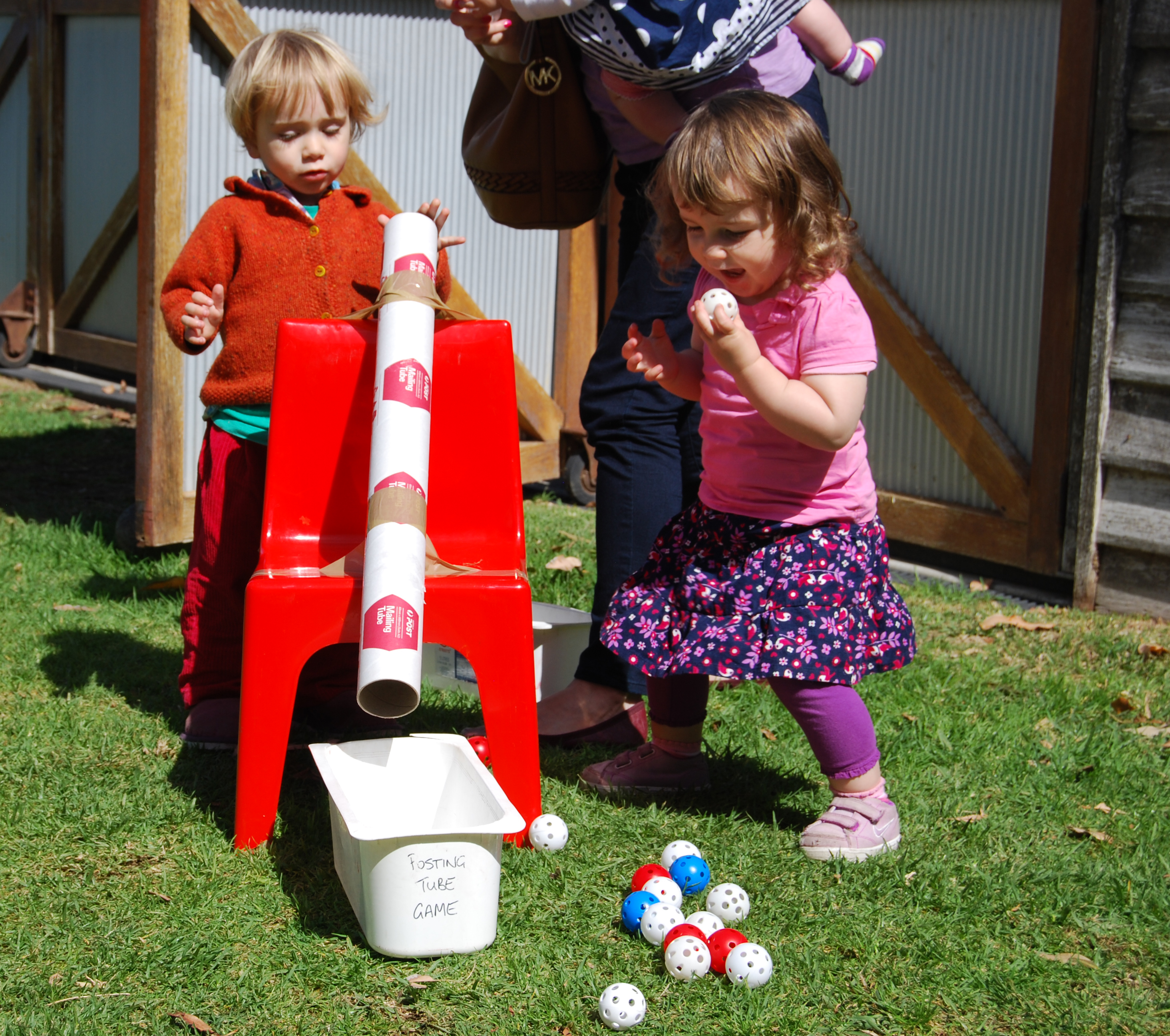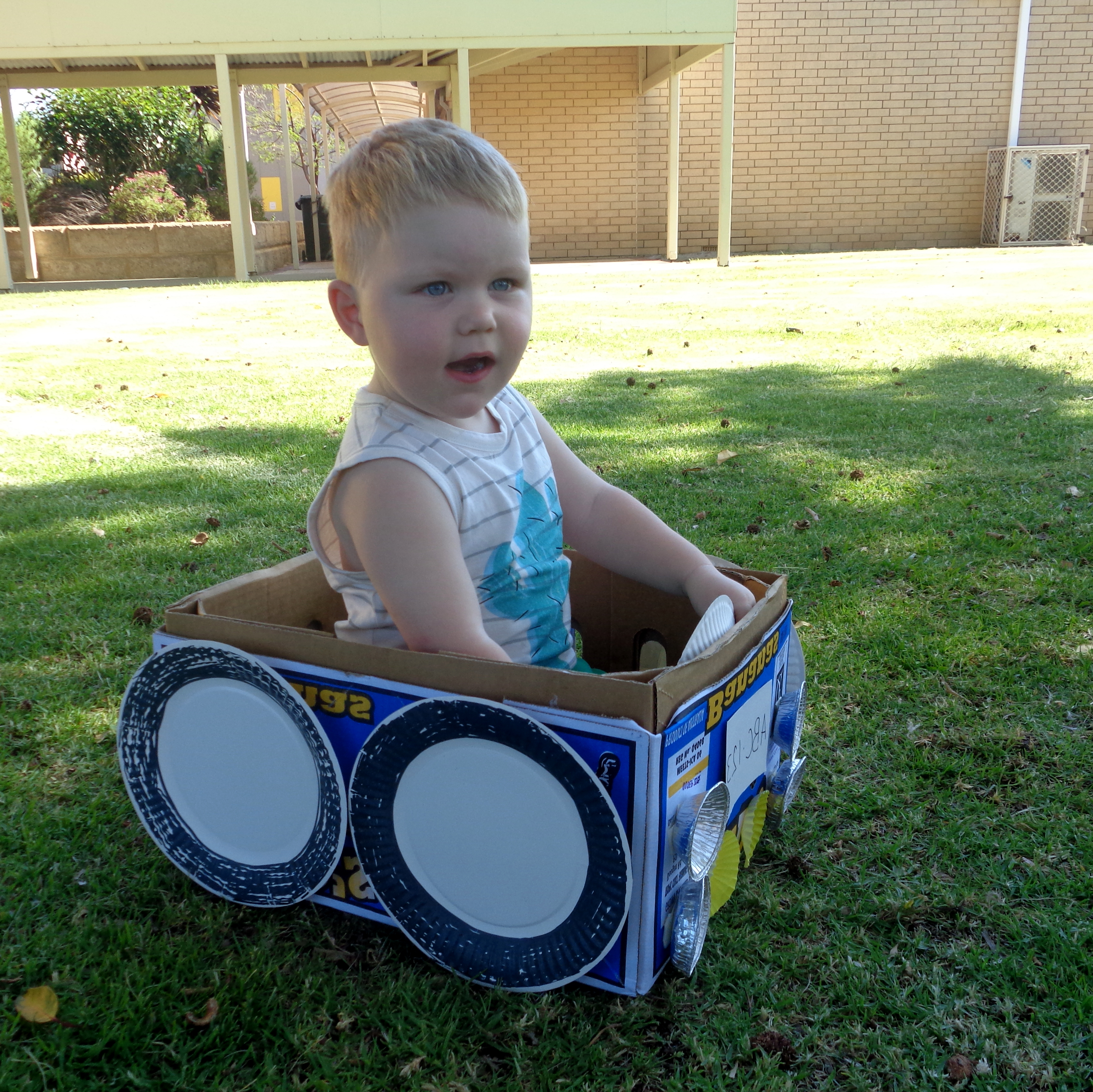 By now many of you will have seen the new play ideas on our Facebook page and website and hopefully had a chance to try some out.
By now many of you will have seen the new play ideas on our Facebook page and website and hopefully had a chance to try some out.
Some of you may be asking what all the fuss is about. You may be happily spending lots of time down on the floor with your children having a great time. You may be delighting in how you can see your children experimenting with how fast, how strong, how delicate, how loud and how creative they can be while learning new things and seemingly growing before your eyes.
You may be well aware of how hard children can concentrate and how their emotions move from joy to despair while they figure out how to build a tower of wooden blocks or a sand castle.
Most of you will know that reading to your children from birth is a great way to assist their long term literacy development. Most of you will know that children’s brains develop more in the first three years of life than at any other time.
Most of you will know that these early years shape our children’s future and you will be doing the best you can to give your children a good start in life.
There is more information available about child development and things to do with your children than ever before and anyone with a mobile phone can find an endless number of websites with advice and ideas any time of the day or night.
There are websites that tell you if you child is developing normally and websites advertising a million things you can buy that will ‘help’ your child. You can read opinions from parents and professors from around the world with a couple of clicks on your phone.
All of this information and contradictory views leaves us in a quandary. We know play is good for children (and us by the way). We know that the single biggest factor in children being able to make the most of what school offers is their ability to manage themselves and their relationships and we know that like any other new skill children need the opportunity to practice getting along with other children.
When my children, who are almost 5 and 7 are working out the rules of their games between themselves and their friends they are learning about negotiation, boundaries and right and wrong. If you’ve ever seen how passionate children get when someone is not following the ‘rules’ you will know what I mean. It’s often me who doesn’t understand the rules of various games mostly because I don’t pay enough attention.
So why, you may ask, has Playgroup WA created another set of play ideas?
The answer is quite simple but in some ways disturbing. It seems that the more we know about how play is fundamental to children’s healthy physical, emotional, social and cognitive development, the less play is actually happening.
We have become so busy and have so much information about children and parenting that play has somehow been relegated to the trivial.
 Maybe it’s because families have become smaller and there are less people with experience of children until they have their own.
Maybe it’s because families have become smaller and there are less people with experience of children until they have their own.
Maybe the play opportunities that children of past generations routinely enjoyed with multiple siblings, cousins and neighbours are simply not available in our days of small families, small backyards and large fences.
Maybe there is just too much information and we are paralysed by trying to sort out what is best.
The world is different. The play experiences that once just happened between kids are not as frequent and us adults need to step up to ensure that play doesn’t get lost among all the other busyness of our lives.
The play ideas we have developed are tools to help us adults help our children.
They are all simple, cheap and designed to cover all areas of child development.
They are ideas that we hope will make it easier for us adults to ensure that rich and varied play experiences are available and achievable. They are based on the most up to date science and they will help prepare children for school.
They will help children grow and they will help develop your relationship with your children. They will also hopefully remind everyone that a parent/caregiver is both the best toy and the most important teacher that children will ever have.